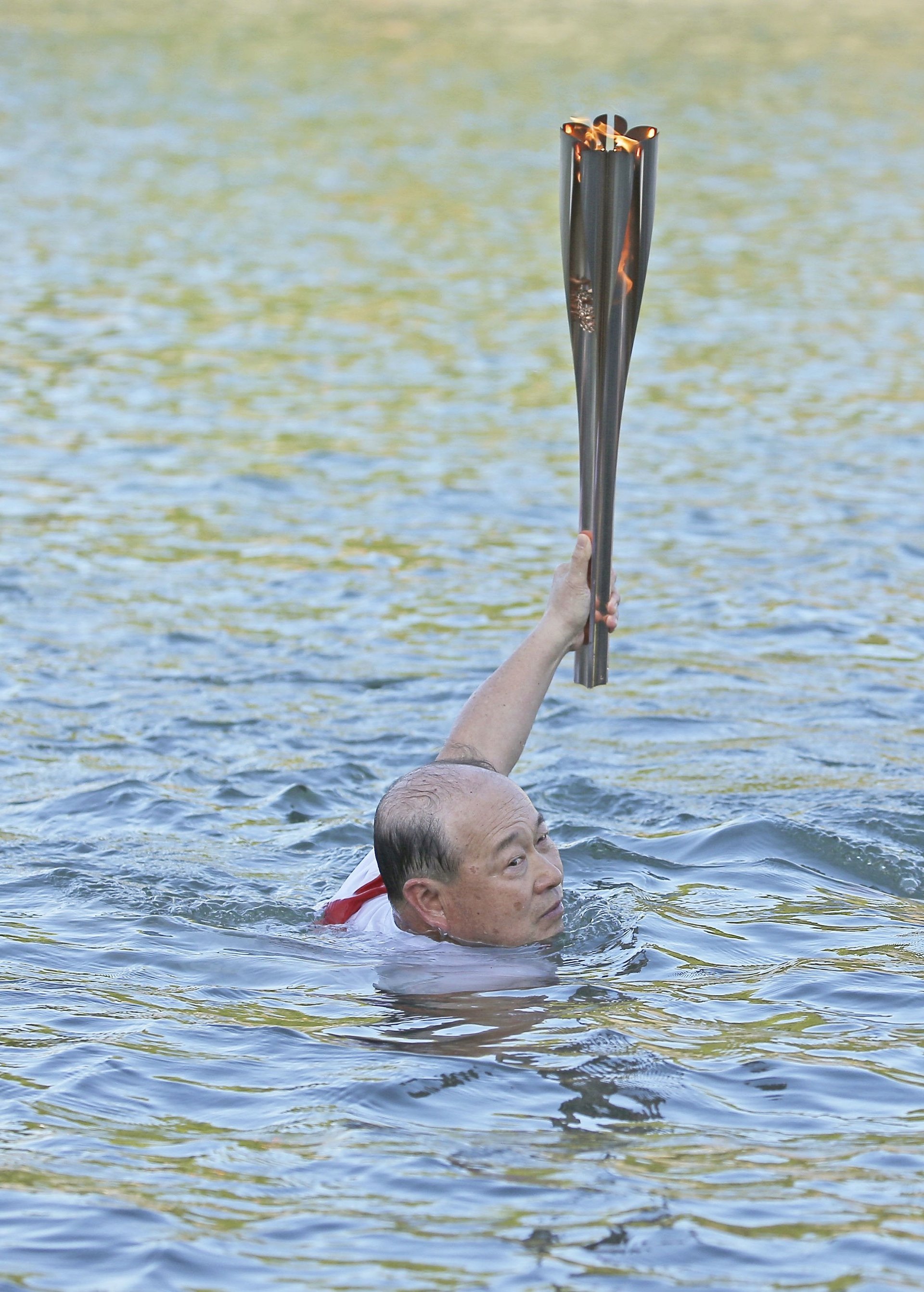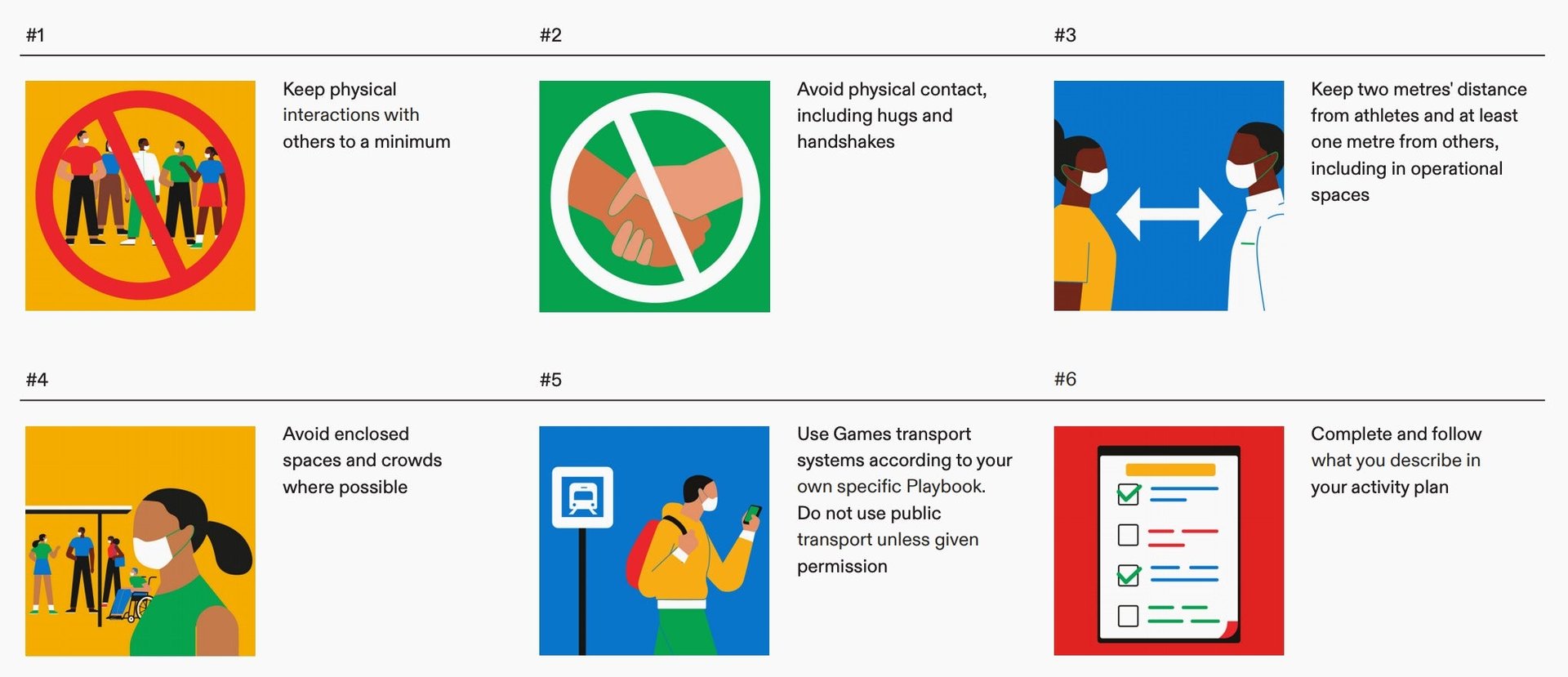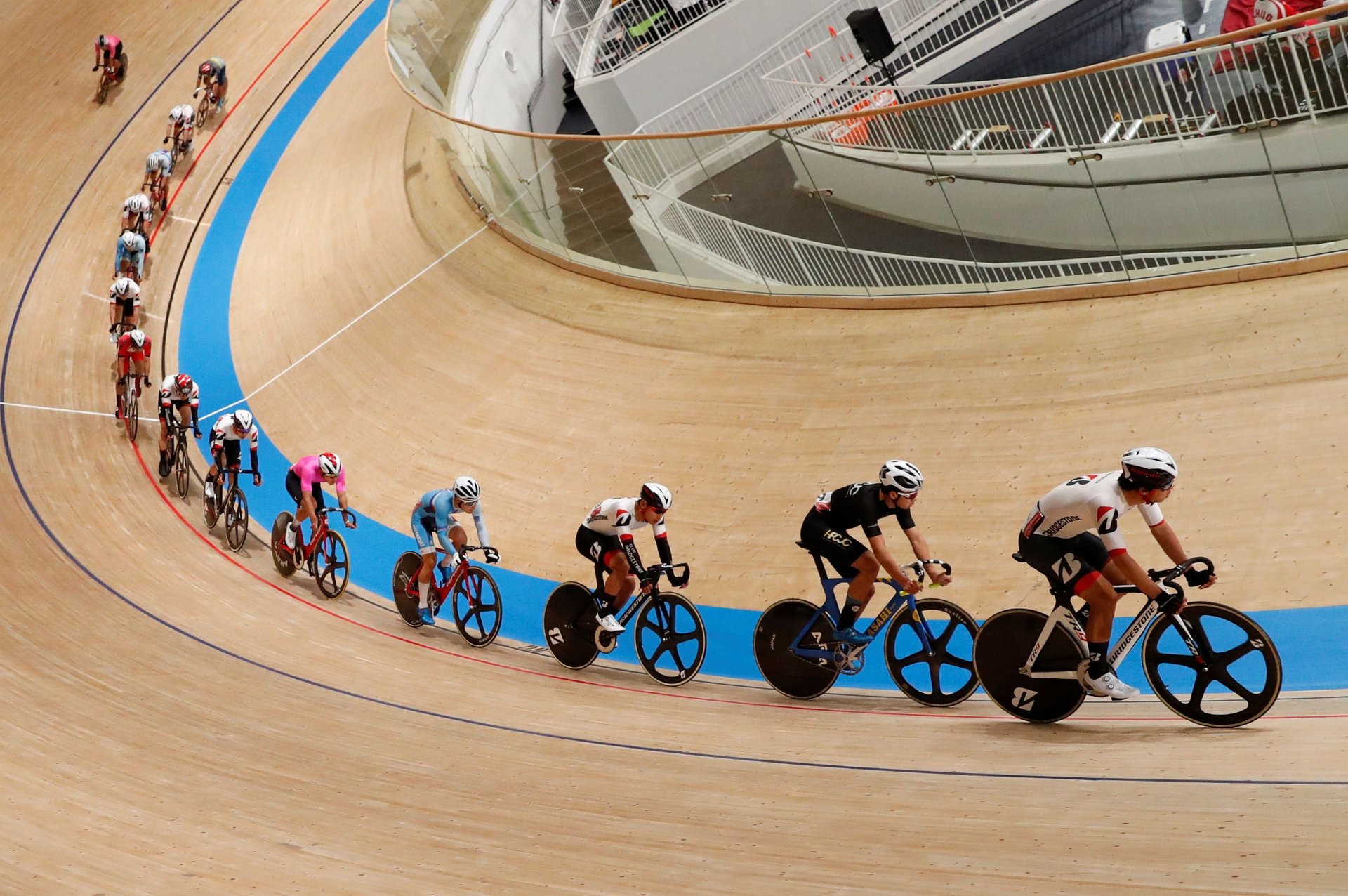Tokyo says that the Olympics is proceeding. Here’s what athletes will have to do.
It’s happening—for now.


It’s happening—for now.
Despite soaring coronavirus rates in Japan, organizers of the Tokyo Olympics say that the summer games will proceed as scheduled from July 23 to Aug. 8. The Paralympic Games will be held on Aug. 24 to Sept. 5, as planned.
Shinzo Abe, Japan’s former prime minister, postponed the thirty-second edition of the games last March, as the world began to accept the severity of the coronavirus pandemic. Japan spent the equivalent of $15 billion building out its Olympics infrastructure, anticipating some 11,000 athletes from 205 nations and an influx of 600,000 million foreign visitors.
Japanese officials have since tempered their ambitions. They’re preparing to host a shorter and simpler event for a largely Japanese live audience, and resolved to retain the games’ original 2020 branding, despite the postponement. The Olympic organizing committee decided last month to bar foreign spectators and issue refunds to sports fans who had scored tickets two years ago. “It was an unavoidable decision,” explained Seiko Hashimoto, president of the Tokyo 2020 organizing committee (and seven-time Olympic speed skater and track cyclist) in a public statement. “The Tokyo 2020 Games will be completely different from the past, but the essence remains the same.”
The latest guidelines indicate that athletes and staff will need to test negative for Covid-19 96 hours before they leave their countries, an increase from 72 hours the organizing committee previously required. Upon arriving in Japan, athletes will be tested at the airport and they’ll need to submit to daily testing during a mandatory 14-day quarantine period in the Olympic Village. During that time, they’ll be allowed to compete or practice, as long as they do not leave the approved training and competition venues. Journalists and officials from the International Olympic Committee and other sports federations will be tested daily for their first three days in Japan.

In February, the International Olympic Committee issued the first of several playbooks containing safety rules, designed to create a tight, Covid-safe bubble during the event. The guidance for athletes and officials contains standard hygiene, contact tracing, and social distancing measures for athletes. It also lists safety measures for audience members, such as mask wearing and a moratorium on chanting or cheering to minimize the spread of the airborne virus. New editions of the resource guide are expected this week.

Meanwhile the Olympic torch is steadily making its way through the country, but the mythic relay was marred by news of a police officer who contracted Covid-19 while manning traffic when the torched passed through the Kagawa prefecture in southwest Japan. Several sports teams have also participated in “test runs” in Tokyo, under the banner of “Ready, Steady, Tokyo.”
Despite the Olympic committee’s resolve to host the games and recoup losses from advertisers, a recent poll indicates that majority of Japanese would rather cancel the games altogether.